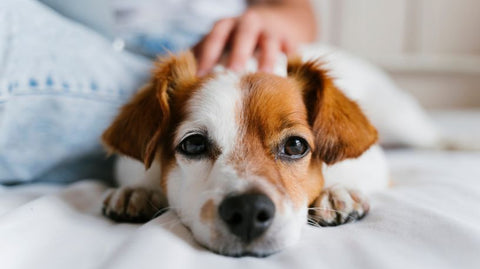

4th of July Pet Safety Tips: Vet Recommendations
The Fourth of July is a favorite holiday for many Americans, but the fireworks, crowds, and backyard parties can be stressful—and even dangerous—for our furry friends. Veterinarians see a spike in pet-related emergencies around this time of year, from anxiety attacks to accidental injuries and lost pets. That’s why we’ve gathered a list of vet-approved tips to help you take extra precautions to keep your dog or cat calm, secure, and safe all day and night.
What precautions should pet owners take to ensure their pets are safe during 4th of July celebrations?
Pet owners should take several precautions during July Fourth celebrations to ensure their pets' safety. Keep pets indoors or in a secure area to avoid fireworks anxiety, and keep items like charcoal out of their reach. Ensure they wear ID tags, provide a safe space, and keep harmful foods out of reach to prevent accidents or escapes.
How can fireworks affect pets, and what symptoms should I watch for?
Fireworks can terrify pets, leading to anxiety or panic. Symptoms to watch for include hiding, excessive barking or meowing, destructive behavior, and attempts to escape. It's crucial to keep your pets indoors, provide a safe space, and consider calming products or medications if needed during 4th of July celebrations.
1. Firework Festivities and Fear: Why Pets Panic
Loud fireworks might be thrilling to us, but pets often perceive them as threats. The unpredictable booms, whistles, and flashes can trigger their fight-or-flight response, making it a good idea to be aware of their behavior during these events. Gradually introducing pets to recordings of fireworks sounds can help diminish their anxiety.
Signs of noise anxiety in pets include:
-
Pacing or trembling
-
Hiding or trying to escape
-
Whining, barking, or meowing excessively
-
Drooling or panting
-
Accidents in the house
If your pet has reacted poorly to loud sounds before, it’s wise to plan ahead and create a soothing environment before the first sparkler even lights up.
2. Create a Safe and Calm Space
Veterinarians recommend setting up a quiet area with soft music where your pet can retreat during the noise. Think of it as a cozy “calm cave.”
Tips for a comfort zone:
-
Choose a room away from windows and doors
-
Add blankets, toys, and familiar scents
-
Turn on a fan, TV, or white noise machine
-
Keep the lights on to muffle flashes from fireworks
-
Use calming sprays or natural anxiety remedies if needed
Never force your pet out of their hiding spot—let them ride out the stress in their safe zone.
articleproducts1
3. ID Tags and Microchips: Veterinarian Suggested Safety Measures
Every year, shelters report an increase in lost pets around July 4th. Frightened animals may bolt through open doors or fences.
Make sure your pet’s ID is up to date:
-
Confirm collar tags have current contact info
-
Double-check your pet’s microchip registration
-
Take a recent photo of your pet, just in case
-
Keep doors, windows, and gates securely closed
Better safe than sorry—these simple steps can make all the difference if your pet gets scared and runs off.
4. Avoid Party Hazards: Grills, Food Scraps
Backyard barbecues and picnics bring unfamiliar smells and temptations, but many foods and items, such as avocado, can be harmful to pets.
Keep your pet away from:
-
Alcohol, chocolate, and onions
-
Grapes, raisins, and fatty meats
-
Glow sticks, sparklers, and fireworks
-
Skewers, bones, and foil wrappers
-
Trash bags and unattended plates
Instead, offer safe treats and fresh water in a shady, cool spot to keep them happy during the festivities.
5. Calming Aids Can Help
If your pet struggles with anxiety, your vet may recommend natural supplements or calming products to help manage their stress. Prana Pets offers herbal calming remedies, like melatonin for dogs or CBD Oil, that many pet parents use to support relaxation during fireworks and other stressful events.
Consider trying:
-
CBD Oil for dogs and cats
-
Nervous System Support herbal formula
-
Complete Calming Pack for comprehensive anxiety relief for dogs
-
Lignans and Melatonin for dogs
-
Adrenal Balance to help balance cortisol (stress hormones) levels in dogs
Always consult your veterinarian before trying new supplements, especially if your pet is on other medications.
articleproducts2
Final Thoughts
The Fourth of July should be fun for the whole family—including our four-legged ones. With a little preparation, some vet-recommended precautions, and professional advice, you can help your pet stay cool, calm, and collected through the fireworks frenzy.
articlebanners1


